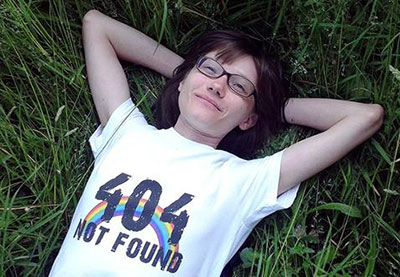Russian court secretly rules against LGBT youth group

Elena Klimova, founder of Deti-404
In an astonishing miscarriage of justice, a Russian court has ruled against an online support group for LGBT youth after secretly changing the court date.
On Monday, representatives of the Deti-404 (Children-404) online group arrived at the St. Petersburg court to attend a scheduled hearing on charges that its site had violated Russia’s anti-LGBT “propaganda” law.
According to Human Rights Watch, they were shocked to discover that the court had changed the hearing date to the 25th of March without informing them, and had already ruled against the group.
The ruling means that the state agency for media oversight (Roskomnadzor) can include the group’s website in its registry of prohibited websites and webpages, allowing the website to be blocked.
Deti 404 uses online media to allow LGBT youth to share their experiences and to deal with bullying, rejection and suicidal thoughts. It has almost 50,000 followers on Vkontakte, Russia’s largest social networking site.
In January, the journalist who created Deti-404, Elena Klimova, was fined 50,000 rubles (about R10,000) after she was found guilty of promoting “non-traditional sexual relations” in a separate trial.
Two months later an appeals court dismissed the case and ordered a retrial.
In February 2014, a St. Petersburg court dismissed another suit against Klimova, saying it found no elements of “propaganda of non-traditional sexual relationships” in Deti 404’s activities.
“Considering the repeated nature of legal proceedings against Deti 404 and Klimova, it is clear that the authorities are using the discriminatory ‘gay propaganda’ law to harass her and force Deti 404 into silence,” said Tanya Cooper, Russia researcher at Human Rights Watch.
“Klimova finds herself, like many other Russian human rights activists, locked in a legal battle with the state rather than devoting all of her energy to helping LGBT children get access to information, justice, and equality.”
Cooper said that Russia’s anti-LGBT law “does not protect children, it robs them of access to important information about their health and identity.”
She added: “Deti 404 offers LGBT children a safe space to talk about abuses they experience and to get support, while the Russian state turns its back on them and refuses to hear their voices.”
Leave a Reply